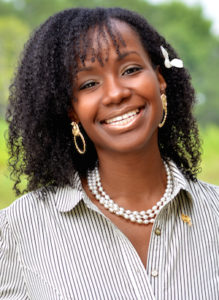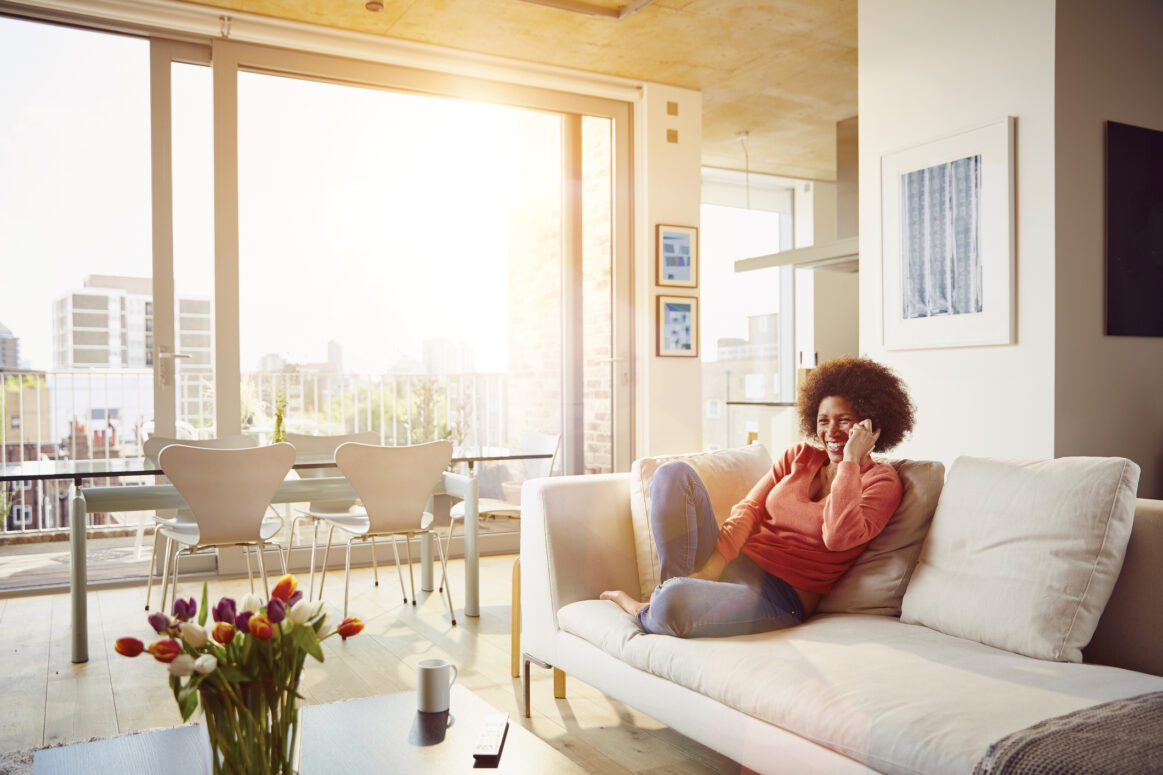
Lee Davenport
By: Dr. Lee Davenport
The below are all direct quotes from community members. These statements were made in 2020, even though they sound like they’re from a very different time.
“I didn’t know I could buy a house without a man.”
“I want to wait until I get married to buy a home.”
“I’m afraid to intimidate any potential suitors.”
“If she buys a house before she gets married, she will likely die alone; surrounded by cats.”
“I want to be like my parents: as a couple, they bought their dream home that had a red door and white picket fence. I can’t afford my dream home alone.”
Surveys find several reasons why women buy fewer and smaller homes than men. The gender pay gap and undermining a woman’s expertise are just a couple of examples. One sentiment that I see prevailing, however, (and I might add that it’s about 50 years past its prime) is that there’s still stigma surrounding the idea that single women can or should own homes.
Survey Says: “All the single ladies, (it’s okay to) put your hands up”
A GOBankingRates 2023 survey found:
- Women are less likely to own a home than men
- One-third (33%) of women don’t own a house, versus one-fifth (21%) of men
- Women are also slightly more likely to never own a home—7% of women because they can’t afford one and 10% because they don’t want one, versus 6% of men who can’t afford one and 8% who don’t want one
- Of those who do own a home, women are more likely to own a less expensive home
- 47% of women spent $200K or less on their homes, versus 30% of men
Additionally, of those who own a home, women are more likely to buy it for more (2%) but sell it for less (2%) than men.
These results are important not because women are competing with men. This is about the fact that women make up the majority in many communities—single or partnered—and should be able to exercise their fair housing (and fair lending) rights—rights that determine their access and opportunity to medical, educational, food and other resources as well as wealth and generational legacy.
The U.S. Census found:
In 1970, 28% of the U.S. population was single (aged 18 or older; divorced, widowed and never married).
In 2021, 48% (basically half) of the U.S. population was single (with 63% never married).
Why does this matter? Almost half of the adult U.S. population is now single; however, single women still feel the heat and are stigmatized for homeownership, which may minimize our financial freedom.
How Have Laws Changed: “I need no permission”… “I’m doing my own thing”
Up until the 1970’s women were barred entry in the financial realm. They couldn’t even have a checking account in their name. Times and laws have changed. Now, women have access to all of the same financial tools that a man might have. But this access is relatively new.
In 1974, women could obtain a regular line of credit without a husband or father co-signer (The Equal Credit Opportunity Act).
It wasn’t until 1988 that women could apply for and obtain a business loan without a husband or father co-signer (Women’s Business Ownership Act).
Though laws have changed, stigma and corresponding myths prevail in many cases. Many women simple don’t realize they can obtain a mortgage and afford a home independently because historically, they haven’t had the opportunity. Sometimes it takes generations to see or understand change, and these pervasive ideologies still exist in many groups, communities and teachings today, which can hold women back from achieving financial security and equity.
Wealth Building Practice: “Don’t be mad once you see that he wants it”
To make it plain: Being a renter is not a pillar of feminine piety. Rather, it should be a financial strategy, a means to an end. In some cases, renting makes perfect sense and in others, own a home is what works best. Real estate can be an investment vehicle. We have to live somewhere as single women and if you already live alone, why not get some form of return on your housing expenses?
You are likely paying someone’s mortgage – it might as well be your own!
I’m thankful I come from a real estate investor family, so I was encouraged to buy young. I bought my first real estate property after graduating from college. I used the equity from that property to buy my first income-producing apartment building.
Despite my promptings and real-life example, I remember some of my single women friends saying that they wanted to wait until they got married to buy homes, although it was a buyer’s market at the time (had it been a seller’s market, I would not have been so adamant). I emphasize my women friends because my guy friends were with it – some even felt they would be more attractive to a potential mate by owning a home.
In other words, homeownership distinguished the guys, but I found that some (not all) of the women felt they would exude “masculine energy” and diminish “feminine energy.”
I repeat: Real estate is an investment vehicle that is a morally neutral, genderless endeavor. It’s a financial decision.
As the years passed, those of us in that friend group that invested in real estate could cash out on the appreciation and/or income. Sadly, many of my friends who chose not to invest in real estate have struggled as income (raises, bonuses, etc.) fails to keep up with inflation or, worse, they’ve experienced job loss, hefty expenses, or unexpected financial burdens.
I’ve had my own experiences with unexpected financial burdens. I’ve gone through various (some rare and befuddling) health challenges, despite being a “gym rat” and a healthy eater, that have required appointments with numerous, expensive specialists. Insurance only goes so far, and I spent a fortune liquidating my real estate assets to ensure I had the best possible care.
I’m grateful that simply taking the first step to buy my first home after college may have been the thing that saved my life. I had the financial boost and cushion needed to pay over a decade’s worth of expensive, sporadic (based on the whims of my body) medical bills.
Of course, this is my personal experience, but the data tracks as well. Homeownership is a wealth builder. It provides access to capital across the board, especially for otherwise underrepresented groups. NAR’s Wealth Building Data from N.A.R asserts that:
- Low-income homeowners built $98,900 in wealth and upper-income households built $150,800 in wealth from home appreciation since 2012.
- Black homeowners experienced the smallest wealth gains among all racial/ethnic groups (appraisal bias is one restricting hurdle) but were able to accumulate more than $115,000 on average in wealth in the last decade.
- Homeowners who benefited from home price appreciation in the last decade could drop their debt by 21%.
Here are my takeaways from NAR’s data:
- The wealth built through homeownership can make the difference between having financial breathing room or losing our shirts as life happens.
- With returns like these (despite inequities), homeownership is still one of the best ways for most people to reduce (or stay out of in my case) debt and build wealth.
- Appraisal bias, redlining, and other forms of unfair housing can impact a homeowner’s ROI so there is a need for more real estate pros to proactively advocate for fair housing and fair lending (see the tips below).
Proactivity Matters: “If you liked it then you should have…”
As real estate, mortgage, and appraisal pros committed to advocating for access and opportunity in housing for all, let’s dead the stigma of homeownership for single ladies.
How do we do this? I’m so glad you asked:
- We are never excluding anyone, of course, but we can absolutely hold our homeownership seminars and other public-facing training at local women’s clubs (in addition to our usual places).
- We can partner with local fair housing centers by donating, fundraising, and volunteering as testers.
- We can partner with or even offer pro bono housing services to women’s centers (including domestic violence centers, women’s shelters, etc.).
- We can sponsor and provide homeownership workshops for single adult meetups, book clubs and other groups in our areas.
- We can partner with women’s colleges (like Spelman, Agnes Scott, and others) and local chapters of Girls, Inc., Girl Scouts, and other young-women-focused community organizations (along with their male counterparts – remember this is not about exclusion but about offering proactive opportunity) to:
- Teach about homeownership,
- Offer real estate internships/fellowships and
- whatever else you can dream up that provides housing access and opportunity (within the confines of laws).
Dr. Lee Davenport is an Atlanta-based real estate coach who trains agents, teams, brokerages, and other business organizations on how to use today’s technology to work smarter. Join Lee’s free RE Tech Insider’s Club by visiting LearnWithLee.REALTOR

Comments 4
I have been a single mom, Realtor, now a single senior, still doing Real Estate at 76. I have and do have homes I own, one being a farm in Virginia. I am also a licensed Class A Contractor in Virginia. I love my job, and work with so many women to own real estate. Real estate is wealth building, people are my passion. Everyone needs to own a home that wants one. I have an Aging in Place Designation that has helped so many of my females stay in their home longer.
“Single ladies?” I and my successful single home-buying clients, who happen to be very smart women, would recoil at seeing that phrase. It’s phrases like that that probably go hand in hand with agents who might pressure their single female clients to accept less or not ask for more in a sale, or over-pay for a house.
A December 2021 NAR article said: “Women have been second only to married couples in the home buying market since NAR started data collection on the topic in 1981.” This totally contradicts the GOBankingRates survey seemingly more authoritatively, with decades of data.
I can’t believe that in this day and age some women are thinking like this. I have heard that they rather travel than own a home. The effort towards homeownership begins at home. Teach your children to save and work at a young age (gasp), is the way towards homeownership. I can affirm that this method pays off even in areas that are hard to enter as a first time homeowner. The perception that a single lady would be an old maid with lots of cats makes me chuckle. Naw, I joke that it helped make me more attractive to a perspective suitor who also owned. Then we sold both homes and made the next one our forever home. I’m still living with him in the same house for over 30 years.
Pingback: Homeownership is Up Among Single Women. Could Targeted Financial Literacy be Why?